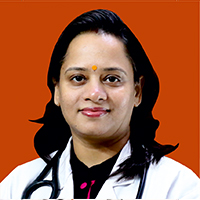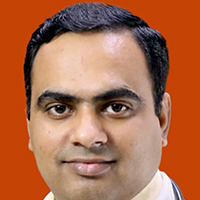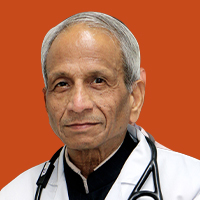

Successful Treatments
Clinics
Doctors
What is Hypoglycemia?
Low blood sugar has been a common term for hypoglycemia, referring to the phenomenon where blood glucose decreases below normal ranges. Glucose is a vital energy-boosting substance in the body needed to power cells; thus, its maintenance at appropriate levels is essential to proper body functioning. When the glucose levels are too low, the body is rendered incompetent to perform its normal activities. This leads to a whole range of symptoms and health conditions, from minor discomfort to serious complications.
In diabetic patients, hypoglycemia is most often a result of overmedication with insulin or other glucose-lowering medications. However, in people without diabetes, hypoglycemia can result from inadequate intake of food, excessive alcohol consumption, large physical exertion and certain hormonal imbalances. Prompt recognition and treatment of hypoglycemia are extremely important to prevent serious health results.
Ayurvedic Treatment for Hypoglycemia
Ayurveda healing propagates the balance of the body system and normalises blood glucose. This includes comprehensive treatment procedures that deal with herbal remedies, dietary rules, lifestyle modification procedures, and mental well-being practices.
Herbal Remedies
Herbal products are considered to be viable in balancing blood sugar levels as well as maintenance of overall metabolic health. One of the best herbs for insulin sensitisation and blood glucose balance is Fenugreek, or Methi, which is established as a common remedy for low blood sugar. Another herb is Indian Gooseberry or Amla, which is valued for its blood sugar-balancing characteristic that works to improve energy levels. Bitter Melon, known as Karela, is another prevalent herb used for this purpose, as it lowers the amount of blood sugar content and facilitates glucose metabolism. More importantly, Ashwagandha nourishes the adrenals, thereby reducing the level of stress, which is one of the most common triggers for fluctuations in blood glucose.
Dietary Guidelines
According to Ayurveda, Hypoglycemia is optimally managed with a proper diet. Regular small meals keep the blood sugar normalised and do not allow rapid collapse, which is a characteristic of hypoglycemia. Examples of these include whole grains and legumes like oats, barley, and lentils, which sustain energy for a longer period with a resulting stable pattern of blood sugar. Healthy fats and proteins emanating from sources like nuts, seeds, and lean proteins must be utilised as they always work to maintain energy levels. Blood glucose decline cannot easily be observed in people who consume healthy fats and proteins. In addition, refined sugars and processed foods are to be avoided because their improper replenishment causes a rapid increase and subsequent decrease in blood glucose, which again enhances overall glucose control.
Lifestyle Modifications
Ayurveda also stresses the importance of a balanced lifestyle in managing hypoglycemia. Exercise such as moderate physical activity, like practising yoga or walking regularly, enhances insulin-sensitizing and stabilises blood sugar. Stress management techniques like meditation and Pranayama could be advised to cope with stress, which has the worst negative effect on blood sugar. Proper sleep is necessary because it improves overall health as well as maintains blood glucose levels, therefore preventing and managing hypoglycemia.
Detoxification Therapies (Panchakarma)
Ayurvedic detoxification treatments, such as Virechana (purgation) and Basti (medicated enemas), can be an adjunct therapy for hypoglycemia. Both of these hypoglycemia treatments are believed to enable the body to eliminate the toxins, Ama, and rebalance the doshas, thereby revitalising metabolic function and health. These imbalances and the elimination of toxins assist in stabilising blood sugar through these treatments.
Mental and Emotional Well-being
Ayurveda feels mental care is quite important in treating hypoglycemia. Mindfulness and emotional balance techniques, therefore, need to be practised so that stress is managed and maintained, thus preventing fluctuations in blood glucose levels. Ayurveda focuses on mental health in an attempt to bring forth the idea of the interrelated nature between the mind and body, which is the concept through which one can effectively deal with hypoglycemia.
For a person seeking expert advice about Ayurvedic treatment for hypoglycemia, Jiva Ayurveda offers custom-based and holistic treatments by its well-experienced Ayurvedic doctors. Herbal medications and proper dietary counselling with lifestyle practices can be obtained according to the requirements of the body's constitution. It combines age-old wisdom from Ayurveda with modern health insights, enabling you to come to grips and control your blood sugar while leading a healthy life. Through Jiva Ayurveda, you'll receive all the care you need to shine in its multi-disciplinary approach to long-term health and balance.
Importance of Diet and Exercise in Managing Hypoglycemia
A healthy diet and exercise facilitate the control of hypoglycemia and the maintenance of blood glucose levels.
Diet:
- Carbohydrate Management: The knowledge of carbohydrate content and, more importantly, the timing of meals in relation to drops in blood sugars should prevent those drops from taking place. Complex carbohydrates, like grains and legumes, yield long-term energy release.
- Regular Eating Schedule: Maintaining a regular eating schedule prevents a shock drop in blood glucose.
- Balanced proteins, fats, and fibres: Ensure your diet contains a balance of proteins and fats along with fibres. Protein and good fats delay the entry of carbs into the bloodstream in order to increase glucose levels gradually. Foods containing much fibre, such as vegetables and whole grains, release glucose gradually.
Exercise:
- Consistency: Routine, moderate exercise enhances insulin sensitivity and helps in maintaining stable blood glucose levels.
- Monitoring: The blood glucose level must be monitored before, during, and after a workout to prevent episodes of hypoglycemia and assess the requirement to modify food or medication.
Exercise intensity variability: Variability of exercise intensity is a factor that may potentially increase the risk of hypoglycemia, particularly in users of insulin or glucose-lowering drugs. Intensity and time for your exercise should adjust in harmony with your body. Consult your healthcare provider concerning the particular advice you should make for yourself.
FAQs
Over-administration of insulin or medication, insufficient food intake, vigorous physical activity, alcohol consumption, and hormonal insufficiency are some of the causes of hypoglycemia.
Prevention measures involve monitoring blood sugar levels, eating balanced meals on a regular basis, keeping the stress level in control, and medication adjustments where necessary.
No, hypoglycemia is caused by low blood sugar, whereas hyperglycemia is the condition of having high blood sugar.
Yes, by following an appropriate diet as well as medication and lifestyle management, people with hypoglycemia can lead healthy lives.
The frequency of monitoring depends on individual needs and medical advice, but it typically involves checking levels before and after meals and physical activity.
Yes, hypoglycemia can even be managed without medications. Whereas patients may be treated with other drugs, some would still manage to regulate hypoglycemia effectively through dietary and lifestyle measures.
Ayurveda, through meditation and mindfulness, supports mental well-being and instils stability in blood sugar levels as it helps one reduce stress.
Chronic episodes of hypoglycemia may lead to impairment of level of activity and quality of life due to Fatigue, decreased concentration, and increased anxiety. As such, there is a need to manage and prevent hypoglycemic episodes and avoid severe impairment to overall well-being.
Patients who usually experience hypoglycemia should generally steer clear of foods that are rich in sugar. The rapid surge and then subsequent plunges can further damage the individual with hypoglycemia. Balanced meals with whole grains, proteins, and healthy fats would instead minimise the fluctuations in blood glucose levels.
Top Ayurveda Doctors
Our Happy Patients
Social Timeline
Home Remedies
Related Disease
- Ayurvedic Treatment for Obesity
- Thyroid Treatment In Ayurveda
- Ayurvedic Treatment for Diabetes
- Ayurvedic Treatment For Type 1 Diabetes
- Ayurvedic Treatment for Hypoglycemia
- Ayurvedic Treatment for Hyperglycemia
- Get Ayurvedic Treatment For Prediabetes
- Ayurvedic Treatment for Diabetic Neuropathy
- Ayurvedic Treatment for Gynecomastia
- Ayurvedic Treatment for Hernia
- Ayurvedic Treatment for Gangrene
- Ayurvedic Treatment for Weight Loss
Latest Blogs
- क्या अचानक बढ़ता दर्द और जोड़ों की लालिमा गाउट की निशानी है? शरीर में जमा अम्ल की भूमिका समझिए
- Migraine और भोजन का समय: देर से खाना सिरदर्द को क्यों बढ़ा देता है?
- क्या एंटीबायोटिक लेने के बाद पाचन पूरी तरह बिगड़ गया? आयुर्वेद के अनुसार Colitis के उपचार जानें
- अगर मामूली आहार भी पाचन तंत्र सहन न कर पाए तो Colitis को हल्का क्यों नहीं मानना चाहिए? आयुर्वेदिक दृष्टि से जानें
- लंबे समय से सक्रिय Colitis क्यों शरीर की रिकवरी क्षमता को कमज़ोर कर देती है? आयुर्वेदिक नज़र से जानें
- नॉर्मल एंडोस्कोपी, नॉर्मल रिपोर्ट्स… फिर भी रोज़ दर्द—IBS में गलत इलाज कैसे बीमारी को Chronic बना देता है! आयुर्वेदिक उपचार समझें
- क्या बाहर का खाना या मसालेदार भोजन आपके IBS को तुरंत ट्रिगर कर देता है? आयुर्वेदिक दृष्टि से समझें और कब Ayurvedic doctor से मिलना चाहिए जानें
- IBS में दवाइयाँ काम क्यों नहीं करतीं? आयुर्वेदिक कारण और उपचार समझें
- कभी कब्ज़, कभी दस्त: यह सिर्फ पाचन नहीं, पूरे सिस्टम का असंतुलन हो सकता है! जानें कब Ayurvedic doctor से मिलना ज़रूरी हो जाता है
- क्या सर्दियों में दवाइयों के बावजूद साँस पूरी नहीं खुलती? अस्थमा की जड़ आयुर्वेद से समझें
- क्या धूल, धुआँ या परफ्यूम से तुरंत साँस लेने में तकलीफ़ होती है? Asthma के ट्रिगर आयुर्वेद की नज़र से समझें
- सर्दियों में अस्थमा क्यों ज़्यादा बिगड़ जाता है? ठंडी हवा और कफ-वृद्धि का आयुर्वेदिक कारण जानें
- क्या ठंडी हवा लगते ही सीने में जकड़न और साँस लेने में परेशानी होती है? अस्थमा को आयुर्वेद की नज़र से जानें
- क्या सुबह उठते ही बलगम के साथ खाँसी आना अस्थमा का संकेत है? आयुर्वेद से समझें
- क्या लंबे समय तक लैक्सेटिव का उपयोग आपकी कब्ज़ को और जटिल बना रहा है? आयुर्वेदिक समाधान जानें
- क्या गैस, पेट फूलना और सिरदर्द का साथ में होना Chronic Constipation का क्लासिक पैटर्न है? आयुर्वेदिक व्याख्या समझें
- क्या सुबह नींद खुलते ही पेट साफ न होना ‘धीमी अग्नि’ का संकेत है? दीर्घकालिक कब्ज़ में आयुर्वेदिक कारण जानें
- क्या लंबे समय तक बैठकर काम करने से आपकी कब्ज़ लगातार बढ़ रही है? आयुर्वेदिक दृष्टिकोण देखें
- क्या कब्ज़ के चलते आपकी नींद, ऊर्जा और पाचन सब प्रभावित हो रहे हैं? आयुर्वेद में इसके मूल कारण और ज़रूरी उपाय जानें
- क्या तनाव और चिंता भी Chronic Constipation का छुपा हुआ कारण बन सकते हैं? आयुर्वेदिक दृष्टि देखें
Ayurvedic Doctor In Top Cities
- Ayurvedic Doctors in Bangalore
- Ayurvedic Doctors in Pune
- Ayurvedic Doctors in Delhi
- Ayurvedic Doctors in Hyderabad
- Ayurvedic Doctors in Indore
- Ayurvedic Doctors in Mumbai
- Ayurvedic Doctors in Lucknow
- Ayurvedic Doctors in Kolkata
- Ayurvedic Doctors in Patna
- Ayurvedic Doctors in Vadodara
- Ayurvedic Doctors in Ahmedabad
- Ayurvedic Doctors in Chandigarh
- Ayurvedic Doctors in Gurugaon
- Ayurvedic Doctors in Jaipur
- Ayurvedic Doctors in Kanpur
- Ayurvedic Doctors in Noida
- Ayurvedic Doctors in Ranchi
- Ayurvedic Doctors in Bhopal
- Ayurvedic Doctors in Ludhiana
- Ayurvedic Doctors in Dehradun









































